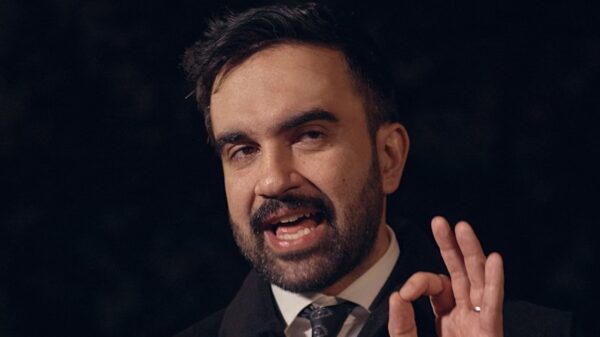UPDATE: Israeli Prime Minister Benjamin Netanyahu is reportedly considering a full military takeover of Gaza as the conflict intensifies. This urgent strategy discussion, held with senior security officials, comes amid catastrophic humanitarian conditions and mounting international pressure for a ceasefire.
In the past 24 hours alone, eight more individuals have died from starvation or malnutrition in Gaza, according to the health ministry. Concurrently, 79 others were killed in recent Israeli airstrikes. As conditions worsen, the urgency for action escalates, particularly after a video released by Hamas depicting Evyatar David, one of the 50 hostages still held, shocked the nation and drew global condemnation.
Netanyahu’s office confirmed a “limited security discussion” lasting about three hours, during which military Chief of Staff Eyal Zamir presented options for the ongoing campaign in Gaza. Reports suggest that Defence Minister Israel Katz and Strategic Affairs Minister Ron Dermer also participated in strategizing for a cabinet meeting scheduled later this week. Notably, Israeli media indicates that Netanyahu is leaning towards a complete military occupation, a significant shift from the 2005 withdrawal that saw Israel relinquish control over Gaza.
The implications of such a move are profound. If enacted, it could lead to a prolonged military presence in Gaza, reversing years of policy aimed at disengagement. However, it remains unclear whether Netanyahu envisions a temporary operation to dismantle Hamas or a more enduring occupation. “It is still necessary to complete the defeat of the enemy in Gaza, release our hostages and ensure that Gaza never again constitutes a threat to Israel,” Netanyahu stated emphatically to new military recruits.
As international calls for a ceasefire grow louder, the Palestinian Foreign Ministry has urged the global community to take the reports of a potential takeover seriously. They warned that this suggested strategy might be a tactic aimed at pressuring Hamas into concessions. The ministry emphasized the need for urgent intervention to prevent further escalation.
The conflict, which erupted after a deadly Hamas attack on October 7, 2023, has already claimed around 61,000 lives, predominantly civilians, as Israeli forces continue their military operations in the densely populated enclave. The blockade has resulted in a humanitarian disaster, described by a leading global hunger monitor as an unfolding famine. Since the onset of hostilities, 188 Palestinians, including 94 children, have succumbed to starvation.
As Israeli tanks advance deeper into central Gaza, uncertainty looms over the potential for a larger ground offensive. Residents in the remaining unoccupied territory fear that any escalation could lead to catastrophic consequences. “If the tanks pushed through, where would we go, into the sea? This will be like a death sentence to the entire population,” said Abu Jehad, a wood merchant from Gaza.
The situation remains fluid, with developments occurring rapidly. As negotiations for a ceasefire collapse, the world watches closely to see how Netanyahu’s decisions will unfold and impact the region. With hostages still unaccounted for and humanitarian conditions deteriorating, the next steps taken by Israeli leadership could significantly alter the landscape of the ongoing conflict.



































































